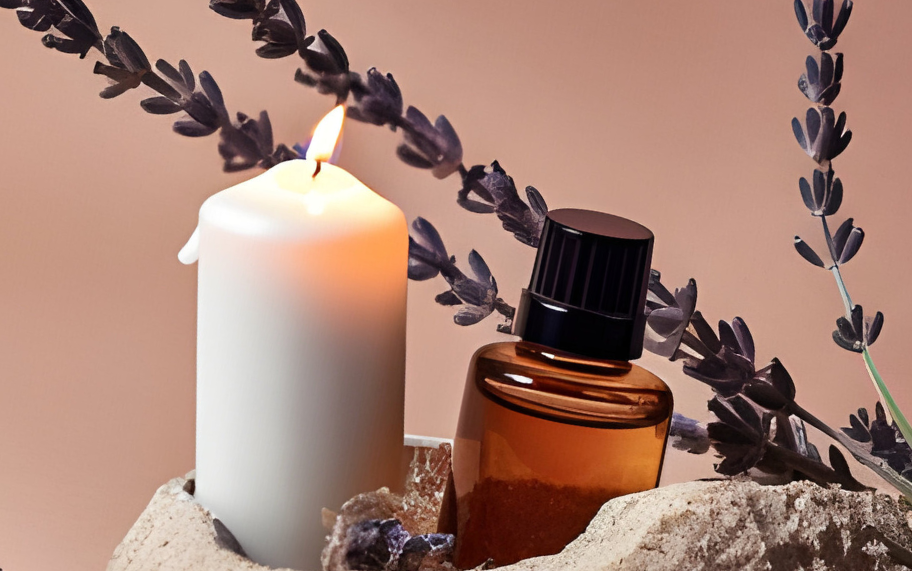Uncovering the Art and Science of Crafting the Perfect Scent: A conversation with perfumer Neha

Erin Parsons, the candle making specialist at Village Craft and Candle, interviewed Neha, a professional perfumer, about the role of a perfumer and the process of creating fragrances for different applications. They will also discuss the importance of fragrance in a product and the trending scents for the upcoming spring and summer seasons.
Village: So can you tell us a little bit about what a perfumer is?
Perfumer in very simple terms, I'll say someone who creates fragrances as per the needs of customers. So based on the customer requirements, they create fragrances for different applications, for candles, for personal care, for edt, and definitely on different all factor profiles.
Village: Is there a big difference between how you would make a fragrance oil for a candle as opposed to one that you would do for something personal?
Absolutely there is a lot of difference. When we make a fragrance for candles versus edt or even personal care applications. We need to make sure while creating fragrances, that we are using the proper solvent Also every application has different requirements from regulatory compliances from a performance perspective.
We need to take care into consideration all these parameters while creating fragrances for different applications.
Village: From a perfumer's perspective, what would you say is the importance of a fragrance in a product?
So from a perfumers perspective, I'll describe that fragrance is one of the first impressions which consumers get about the product when they buy in shops. So fragrances help consumers to understand products in a better way. Let me put it this way, we all agree that fragrances evoke emotions. The smell of fragrance makes consumers nostalgic. To give you a personal example, I'm born and brought up in India. So whenever I smell sandalwood fragrance, it just makes me very nostalgic. It reminds me of my childhood days in India, the celebrations, and traditions we used to have in India. And this brings me a feeling of comfort, and happiness to me. Also, one more example I'll give is lilac. Most baby products have a lilac fragrance. So whenever I smell lilac or lilac fragrances, it reminds me of the early childhood days of my son when he was born and just makes me very emotional.
So I can say that fragrances kind of with the help of these emotions, nostalgia, and the help of a brand to build a relationship with the customer. The help of a brand to develop its identity.
Village: Fragrances have a top mid and a base note, can you explain those for customers who don't really fully understand what those are screening behind them?
Absolutely! So top notes, middle notes, and base notes are the basic structures. Usually, in perfume terms, we describe it as a fragrance parameter, which is composed of a top, middle, and base. Note, these notes are like top notes, middle notes, and bottom notes. These notes are usually based on the weight of the fragrance molecule.
To explain in more detail, the Top note is the first note, or like when we smell at first, it is the top note, which we get to smell first. It is usually considered made out of lighter molecules. For example, citrus, aldehyde and sometimes even spices. Since they're made out of lighter molecules, top nodes even evaporate faster.
Following the top note comes the middle note, which we call the heart of the fragrance. These are usually composed of notes like floral suit notes and follow the heart of the fragrance. Is the base, the bottom of the fragrance composed of heavy molecules like a mask, Amber Woods and these are usually long lasting notes.
You'll be surprised that base notes sometimes last from us to weeks to even sometimes today as well. These notes are very important while creating, well, crafting a fragrance. And, as a perfumer, I would say that it is our responsibility to make sure that these notes are very well balanced, to get a well-rounded fragrance.
And also as a perfumer, we can change the balance of these notes as required by the customer.
Village: What do you find is popular and trending for the upcoming spring and summer seasons?
They are looking forward to the spring and summer. I would like to mention here that we went for a trending track in New York City and based on our trend track, we observed that these days, resonance notes like lab denim, and amber are trending a lot in the market also.
Consumers are focusing a lot on fragrances that contain immune boosting or well-being ingredients like tea, and turmeric in them. And along with these new trending ingredients, I would say the seasonal fragrance notes like cool fruity fragrance notes like dragon fruit, passion fruit, floral, sunflower, high green notes like cucumber, and wild stage are still trending for the upcoming, spring summer 2023.
Key takeaways:
- A perfumer is a professional who creates fragrances based on the needs of customers and creates fragrances for different applications such as candles, personal care and EDT.
- The process of creating fragrance oil for a candle is different as compared to one that is made for personal use and the perfumer has to take into account the different requirements of the applications like regulatory compliance and performance.
- Fragrances evoke emotions and help consumers to understand products in a better way. It also helps a brand to build a relationship with the customer and develop its identity.
Fragrance Oils and Health Products Our fragrance oils are intended for external use in candles, diffusers, and some cosmetic applications. They are not to be ingested, inhaled, or applied directly to skin without proper dilution. Health Canada requires a Natural Product Number (NPN) for the sale of any product making health claims or intended for therapeutic use. It is your responsibility to ensure your final product formulation complies with all applicable regulations and obtains the necessary NPN certification before sale.
Fragrance oils, when incorporated into health products, may require additional safety testing to ensure their suitability and interaction with other ingredients. We strongly recommend conducting independent testing by a qualified laboratory to confirm the safety and efficacy of your final product formulation. By purchasing this product, you agree to assume all responsibility for its proper use and application. We shall not be held liable for any misuse, claims, or damages resulting from the use of this fragrance oil in a health product.





